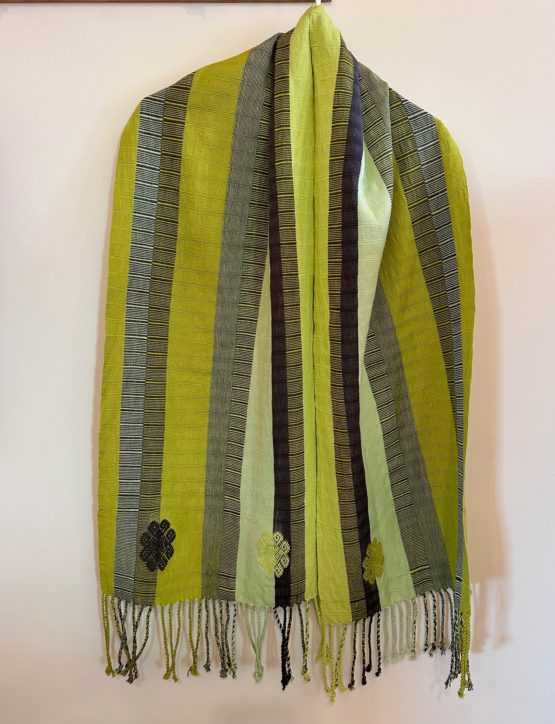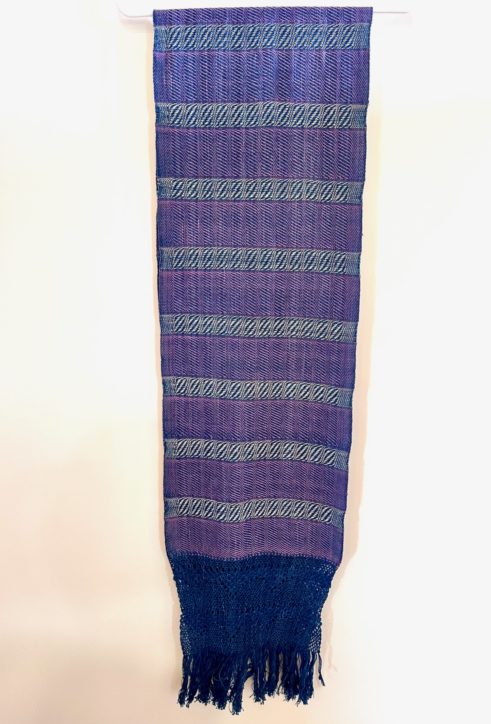Beyond the town’s paved roads, back into the hills far from the village center, is the sacred site Teotitecos call Las Cuevitas. It is the third night, January 2, of a weeklong New Year’s observance practiced here in Teotitlan del Valle long before the Spanish Conquest. For the ancients, the moon set the calendar. A late December -early January super moon would have been an awesome sight thousands of years ago just as it is today.
I arrive by 4:30 p.m. when it’s light enough to find a comfortable seat on a rock outcropping. I am intentionally alone to take in this environment where I live and to do my own meditation about the coming year with no distractions other than the landscape and my neighbors.
The rock mountain has changed dramatically since I was here two years ago. In a beautification plan, I see the steep, stony hillside is planted with young trees struggling to survive this high desert terrain.
The deep holes in which they are planted look like moon craters. Perhaps in ten years this will become a tree-shaded park filled with flowering Flor de Mayo and guaje trees. Ojala!
But not now. The soil is more hospitable to thorny brush. Careful. A misstep on the rock pebbles will send you tumbling. (It did for me and the protective lens cover of my camera shattered.)
This third night is less populated, more tranquil with fewer people. Families set up camp and convert the slope to a picnic ground. Some have tarp shelters or elaborate tents, sides tethered to ground with rocks gathered nearby. Ropes anchor tent to boulders.
Children carry blankets, barbecue grills, wood, charcoal, a bag of meat to cook, a basket of mandarin oranges. I smell charcoal fires and gasoline, the strike of sulphur as a match lights. A wind whips up, carries smoke and cinder. Children hide their faces. So do I. Grandmothers, braids tied with crimson ribbon curl atop their heads like a crown, hover, tend to tender eyes.
The language of Zapotec is spoken here. First language for first peoples. People I know and some I don’t, greet me with Feliz Año Nuevo, extend their arms in embrace and a pat on the back.
Las Cuevitas is the place to pray for a good year. Mostly, my friend Antonio tells me, people ask for good health. Nothing is more important, he says. In my personal world, God is universal and all human beings are good. It is easy for me to be here, lay a coin on the altar of the Virgin of Guadalupe — Earth Goddess –and pray for a year of good health and contentment. We all deserve blessings.
Along the rock hill, I see remnants of dreams constructed on the last two nights of the celebration with rocks, moss, fragrant greens, sticks. These are facsimiles of new houses, a second floor addition, a roof, a fence, a stockade for cattle or goats. Dreams come true if you come to Las Cuevitas and build a miniature.
Mostly, it’s about family, intergenerational connection, integration, celebration. Gathering on the hillside to build together, eat together, pray together, play together. Cultural continuity and endurance prevails here despite intrusions from other worlds.
It’s 5:30 p.m. and the sun glows through the clouds. I’m waiting for sunset at Las Cuevitas. Dry grasses wave. Firecrackers are lit and go skyward with a bang. All is illuminated.
Beyond the caves, cows graze on the top of the opposite hill. Families continue to stream in. Women fan cooking fires. Men carry cases of beer, coolers of food. Soon after dark, young men will throw fireballs across the horizon, much like their ancestors did in a test of strength.
I stay until the sun dips into the Sierra Madre del Sur beyond the next village, Macuilxochitl. You can see their church in the distance. Under the mound that rises on the horizon is an unearthed Zapotec archeological site.
As the sun vanishes, there is chill and I want to get down the rocky slope before the light dims and I can’t find my way. I want to remember the vast expanse of universe, the valley below, the magnificence of sun, moon, stars and the days that are a gift to make meaningful.
























10 responses to “Sunset at Las Cuevitas 2018: The Sacred Caves of Teotitlan del Valle, Oaxaca”